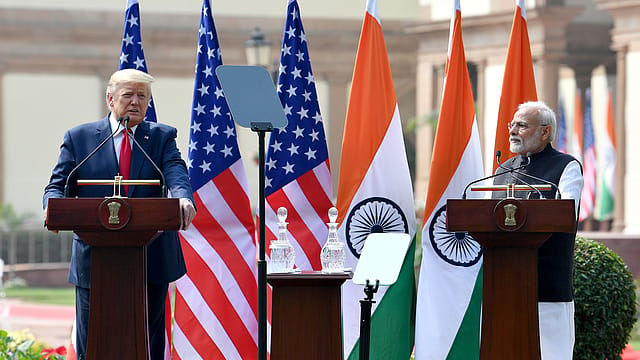The ‘non-state’ future of India-U.S. ties
ADVERTISEMENT

From Bill Clinton to Donald Trump, there is something special about the visit of an American president to India. On its part, with Prime Minister Narendra Modi, and the rise of the Indian diaspora (the wealthiest and also highly educated minority, comprising about 1% of the American population), India has somewhat returned the favour. Now, Modi’s events in America (like the recent one in Houston) make news in that country, too.
Recent talks between the countries have focussed on trade and tariffs amidst reports that the U.S. has now surpassed China to become India’s biggest trading partner (bilateral trade in 2018-19 stood at nearly $88 billion).
What does the future hold for these two countries? Who would be the most critical actor in this future?
As the world transitions from a bilateral to a multilateral to now a plurilateral environment, attention needs to be paid not just to state actors, and their policies, but perhaps equally, or some might say even more importantly, to the actions of non-state actors.
There are two key themes that would take centre stage in this deliberation in the future. The first is the commonality, or divergence, of purpose in Indian and US state policy on climate change. In this, the role of non-state actors is set to exponentially grow. Many of the most critical decisions would be made not just by elected representatives but by oil and gas companies controlled by shareholders who might have diversified interests in both countries. But beyond these two ‘traditional’ stakeholders, a new ecosystem has emerged which has both individual activists of global repute and managers of technology platforms which could be used by both promoters and deniers of climate change to propagate their message.
As two countries which are already the biggest consumers of data and technology, managing this ecosystem has become a critical concern for India and the United States. Who owns information, how it is fueled, and funnelled, and to what use is it put (indeed what role does technology play in strategically aligning the climate change debate) will be a big question that will determine the foreign policy impetus of these countries.
The alignment of tech majors is a crucial part of a bigger puzzle—the role of companies in the future of India-US ties. For a long time, any conversation on this subject has been related to the influence of companies from America and their work in India. What will Microsoft be doing in the next decade? What about Google?
But the tide has begun moving the other way too. If, for instance, taking cue from Modi’s leadership in climate change – including in propelling renewable energy, India’s automobile majors, especially in two-wheelers, innovate on electric vehicles and even gas-fuelled transportation, then the future could seem a different kind of sustainable vehicular movement the other way.
India already has the third-largest startup ecosystem in the world and one of the world’s most powerful digital financial payments systems which are being used by tens of millions with transactions crossing a trillion rupees—and this is only set to grow bigger. Today America’s Google is trying to catch up with India’s Paytm in India in building and serving a giant digital payments platform, but how long before companies like Paytm start to serve the world including American customers? My guess is not too long.
Twenty years ago, a tech boom in America changed India forever with the outsourcing revolution, and now in a sustainable world, India seeks to reverse the gaze to sell everything from spiffy tech to sustainable food and clothing to America. Every day, its startups long to cut through the regulatory hurdle and embrace the world market—the first among those, of course, is America.
This is the conversation of the future between the world’s two great democracies—and it is unlikely to be fuelled only by politicians. The role of Indo-American foreign policy in the future would be to make space—in fact, this would perhaps be the most important role—for these strategic voices from grassroots entrepreneurs to grassroots activists to add to the symphony of diplomacy. This space-creation is a dynamic process and needs sophisticated handling especially since it will be powered by artificial intelligence. But that is another story.
Views are personal.
The author is a historian and a multiple award-winning author.